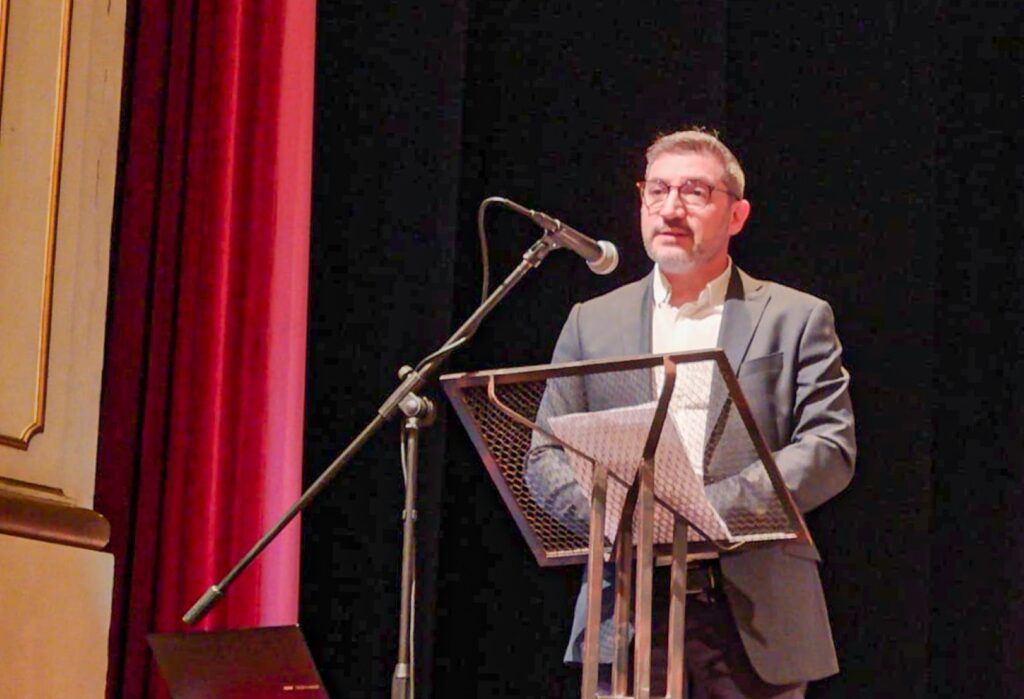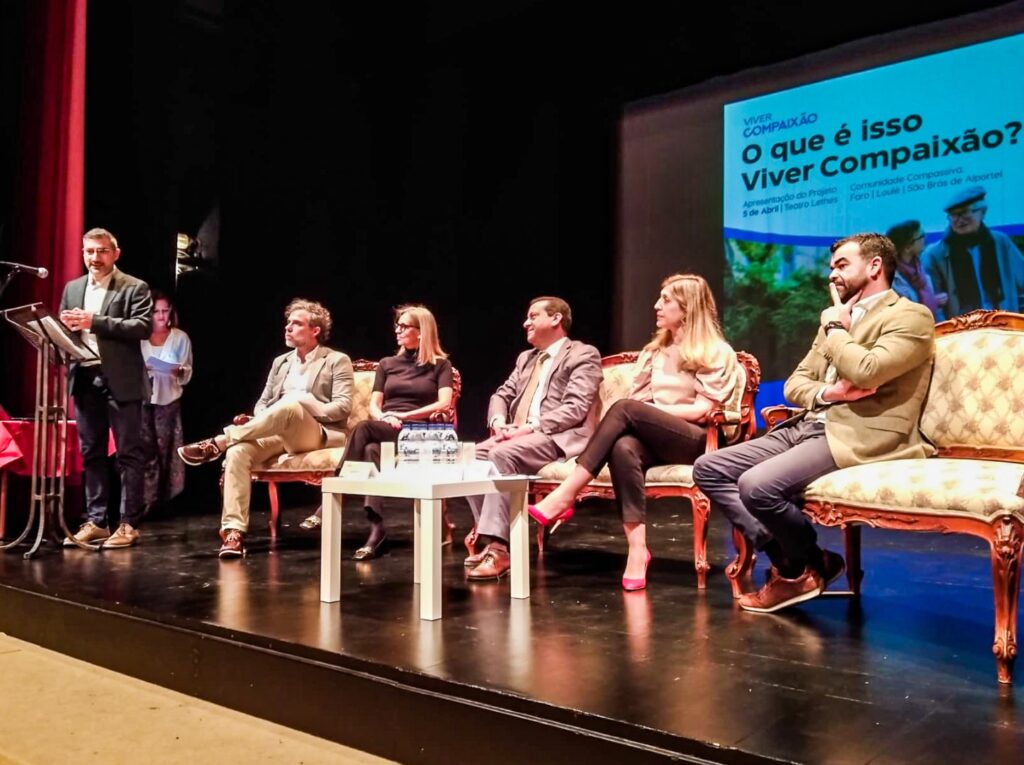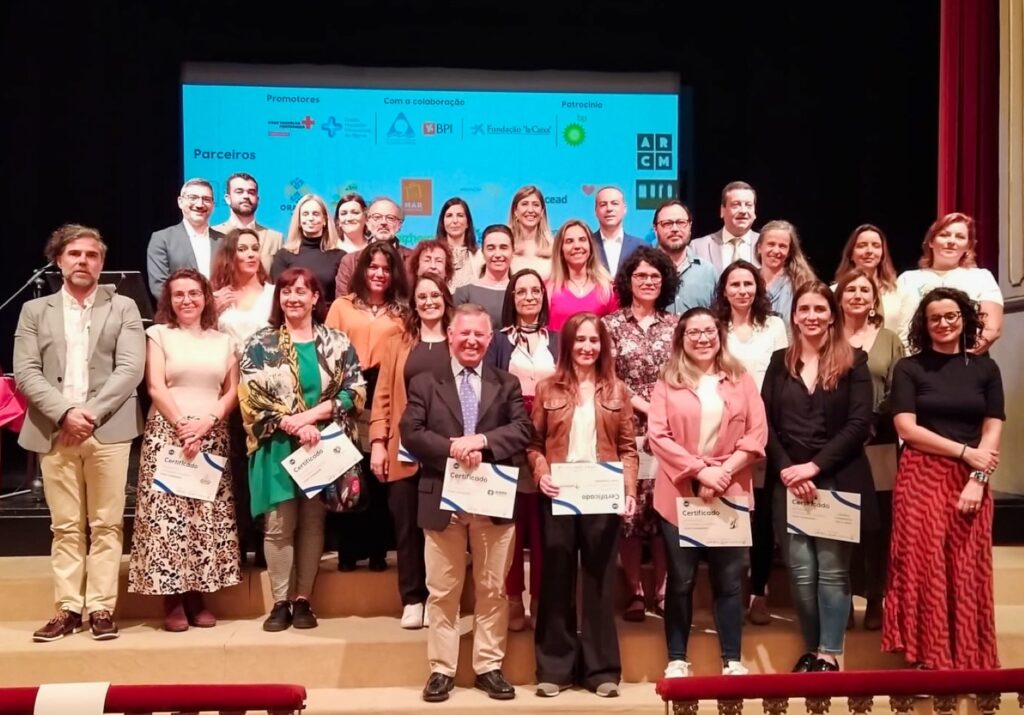It arises to ensure that there is always someone «close to those who need it most» and so that no patient who is receiving palliative care has to make their difficult journey alone and without having access to «true compassion», the act of «giving a little of ourselves for the benefit of the other”.
The first Compassionate Community in the Algarve, within which a network of volunteers will be created to support chronic or end-of-life patients and their caregivers, in the municipalities of Faro, Loulé and São Brás de Alportel, was officially born on Wednesday, the 5th.
Around three dozen partners in the “Viver ComPaixão” project, promoted by the Palliative Care unit of the Centro Hospitalar Universitário do Algarve (CHUA) and by the delegation of Faro/Loulé da Cruz Vermelha Portuguesa (CVP), gathered at Teatro Lethes, in Faro, to formalize the network and learn more about what a Compassionate Community is, after all.
«Compassion is really realizing that we can do something simple for the other, for those who are beside us. And that we can help people live better. People with serious illnesses, who are at the end of life. We collaborate so that life is lived well until the last moment», framed Giovanni Cerullo, the doctor who coordinates the Palliative Care team at Hospital de Faro.
Thus, it is important, from the outset, that society in general understand “what compassion really is. It is not saying: “poor person, who is dying”. No! It is to be, effectively, beside the other, to give a little of ourselves in favor of the other».

Awareness is, therefore, the first of the three pillars of this Compassionate Community.
The second is the action, the «practical part, because it is not enough just to raise awareness, we also have to train people».
«We are going to create a pool of volunteers, who will, above all, be trained, as not everyone can take care of or be with a person who has a serious illness», according to Giovanni Cerullo.
Basically, it is about «training volunteers on how to be, how they should relate [with patients and their families], giving them communication tools and showing them what compassion really is».
This training component is important because “many people say they would like to help a colleague or a neighbor who they know is sick. But they don't know how and they don't have training either. That's why the compassionate community comes into being: to form people, to really be able to be a community and be close to those who need it most».
This training, which will last 80 hours, will focus on «providing help in self-care, whether for the sick person, their formal or informal caregiver or the significant person, the family member», according to Vítor Alua, coordinator of Comunidade Compassiva.
«It is training within the framework of a person-centered helping relationship model, allowing accompaniment through active listening and presence, managing silences and person-centered active dedication, but also with training on what these contexts are [of palliative care], the most important needs of people in these situations», added the same official, who is coordinator of the area of training and projects of the delegation of Faro/Loulé from CVP.

Once they are able to help, volunteers can do so in a variety of ways.
«There are people who live the disease alone, without anyone. We notice that sometimes people come to our appointments alone. In these cases, the volunteers can be that person who is next to the patient, something that we, the health providers, unfortunately, cannot do. We have other obligations», framed the doctor Giovanni Cerullo.
In these cases, the volunteer «can, for example, accompany the patient to the consultation, can help manage the medication or go to the pharmacy».
«There are also caregivers, who have a great burden, because they are 24 hours a day with the patient, who is often very dependent. The volunteer can go to the patient's house, read him a book, talk to him, with the family», he adds.
Another way of helping is «staying at home for two or three hours, so that the caregiver can leave the house and do something like go shopping or take time to take care of themselves, something that is simple for us, but that a caregiver cannot do normally, because he cannot leave the sick person alone».
The involvement of the community in the process of providing palliative care «immensely helps» health professionals, who will be able to focus more «on the physical needs, symptoms or on the psychological part of the patient».
Two other components of the compassionate community involve raising awareness, communication and dissemination and the creation of a group of advocacy (advocate in favor of a cause) with project partners.
Giovanni Cerullo also explained that this project had been «been thought of by the CHUA Palliative Care team for a long time».
Its execution is possible thanks to a partnership between CVP and CHUA, which applied for “Portugal Compassivo – Ties Que Cuidam”, promoted by the Portuguese Association of Palliative Care and by the “la Caixa” Foundation, guaranteeing funding from the latter institution.



















Comments